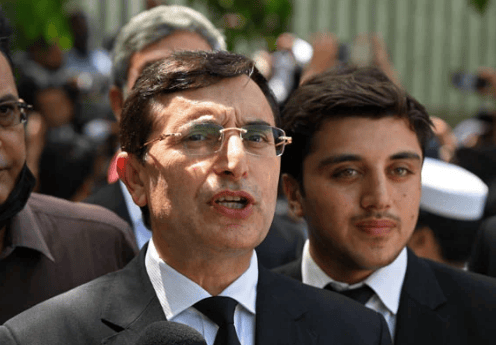PTI’s Barrister Gohar Khan on Sunday unveiled the party’s election manifesto which promised social and constitutional reforms.
Addressing a press conference in Islamabad, Gohar said PTI’s manifesto was titled ‘Shandaar Pakistan, Shandaar Mustaqbil aur Kharaab Maazi sey chutkara’. He said that the party leaders who compiled the document were unable to be present for the press conference over fears of being arrested.
Talking about the manifesto, the PTI leader promised to form a truth and reconciliation commission to address the injustices faced by the common man. He said that the party had always emphasised that the rule of law should prevail in the country and every citizen should be treated equally.
“We cannot have two laws, one for the rich and one for the poor,” he added. “As a barrister, I would say that rule of law is fundamental for every country,” he said. He said that another section of the manifesto focused on modelling the country after ‘Riyasat-i-Madina’ (State of Madina). He said that some criminal and civil laws in the country were either too lengthy or too complicated.
“The Code of Criminal Procedure will be reformed so that the people are protected,” he said, adding that the party did not want the poor to suffer at the hands of outdated laws. He further said that the party would introduce constitutional reforms.
“One of the reforms would be that the prime minister will directly be selected by the people,” Barrister Gohar said. “We will decrease the National Assembly’s tenure to four years, bring the Senate tenure to five years and will directly elect 50 per cent of Senators,” he added.
Commenting on the economy, Gohar promised to reform the tax scheme and also increase the tax bracket. He further said that farmers would be provided a subsidy to help them stand on their feet.
He also talked about the implementation of solar energy projects on a large scale and said the party would also introduce a universal health card. He further said the party was committed to bringing educational reforms and introducing a singular education system throughout the country.










